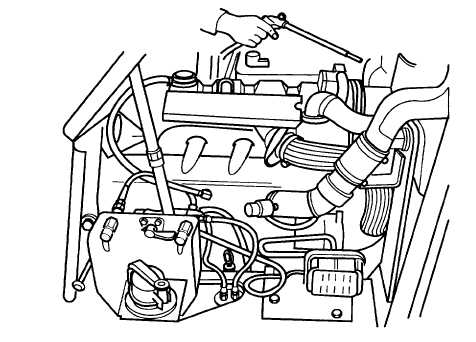| |
TM 10-3930-671-24
Air Cleaning
Typical View Showing Secondary Air Cleaning Procedure (Blowing From Engine Side).
Wear suitable eye protection and protective clothing or
injury could result.
NOTE
Use care when air cleaning radiator. Air pressure may
bend radiator fins.
Always maintain a lift truck in clean condition. Do not
allow dirt, dust, lint, or other contaminants to accumulate
on the truck. Keep the truck free from leaking oil and
grease. Wipe up all oil spills. Keep the controls and
floorboards clean, dry, and safe. A clean truck makes it
easier to see leakage and loose, missing, or damaged
parts. A clean truck will run cooler.
The environment in which a lift truck operates will
determine how often and to what extent cleaning is
necessary. The radiator, especially, may require daily air
cleaning to ensure correct cooling. If air pressure does
not remove heavy deposits of grease, oil, etc., it may be
necessary to use steam or liquid spray cleaner.
1.
Lift trucks should be aircleaned at every PM
interval, and otherwise as often as required.
2.
Air cleaning should be done using an air hose
with special adapter or extension having a
control valve and nozzle to direct the air properly.
3.
Use clean, dry, low-pressure compressed air;
restrict air pressure to 100 psi (690 kPa),
maximum.
Refer to Paragraph 5-4 for additional information on the
use of air nozzles and air cleaning procedures.
4. Air clean the:
a)
Radiator, from both sides: first from
counterweight side (to loosen and clean
away dirt opposite of fan air flow), then
blow away loosened dirt and clean radiator
from engine side.
b)
Engine and accessories.
c)
Driveline,
transaxle,
and
related
components.
d)
Steer axle and steer cylinder.
e)
Upright assembly.
f)
Tilt cylinders.
g)
Hydraulic control valve.
F-55
|



